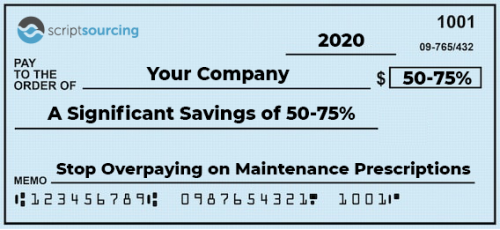Employers Implement “Common Sense” Strategies to Control Healthcare Costs
 —
—
Employers have seen their health insurance premium double the past decade and they’re looking for solutions to better manage what has become the 2nd or 3rd largest expense after payroll.
As a result, many small and mid-sized employers are transitioning away from buying fully insured health insurance from well know carriers such as BCBS, United Healthcare, Cigna, and Aetna, They’re financing their health plan differently by establishing what’s called a self-funded health plan,
Employers like the opportunity to take a “peek under the hood” and see what’s driving their health plan costs … and having the tools do something about it. The healthcare system is plagued with fraud, waste, abuse which results in unnecessary overspend.
NorthBay Adventure is a Maryland based adventure camp for 6th graders with 60 employee on their health plan. NorthBay transitioned to self insurance in 2011. In the 10 years since the transition, they saved over $3mm. Impressively,, NorthBay hasn’t had the need to increase employee’s premiums, copays, or deductibles.
New and innovative risk management solutions are now available to employers. The results are quite impressive as employers are able to save an average of 26% per year. Proactive employers learn how to educate and incentivize employees to be great consumers of healthcare.
When an employer establishes a self-funded health plans, the employer has the ability to customize the health plan and often the benefits are richer than the benefits available in the fully insured marketplace. The main difference is that employers have access to data which means they have the ability to effectively manage risk and reduce healthcare spend. Now employers can retain the underwriting profit that would otherwise belong to health insurance carriers.
Stop-loss carriers (aka reinsurance carriers) provide employers protection from unpredictable claims. There was a time that stop-loss insurance was only available to large employers with 500 or more employees. Now stop-loss insurance carriers have a strong interest in providing coverage for groups with as few as 25 employees.
Given the option, employers like idea of retaining the monies that would otherwise be paid to a fully insured carrier. The average 100 employee group is saving over $200k per year.
There are four main drivers of healthcare spend … pharmacy, hospitalization, physicians, and facilities. Benefit consultants now have access to solutions and vendors that are focused on reducing the fraud, waste, abuse, and overspend in the marketplace.
Gary Becker, CEO of ScriptSourcing, LLC helps self-funded employers prevent, mitigate, and transfer risk by providing innovative $0 copay prescription risk management solutions that reduce prescription spend by 50%.
Recommendations
1. If your company is fully insured, use a free service offered by Enlighten-Analytics to determine if your company is a good fit for self-insurance.
http://www.enlighten-analytics.com
2. Use a Fiduciary PBM whose interest are aligned with the plan sponsor, not shareholders
http://www.southernscripts.net/
3. Use an Rx Mitigation provider that’s able to source name brand and specialty medications at a fraction of the cost domestically.
http://www.scriptsourcing.com/
4. Use a medical management company so employees can have access to the best providers who are fairly priced.
5. Hire a NextGen or Health Rosetta benefit consultant who can provide unbiased, consultative services
http://www.21stcenturyagency.com/
Contact Info:
Name: Gary C. Becker
Email: Send Email
Organization: ScriptSourcing, LLC
Address: 6080 Falls Road Suite 201, Baltimore, MD 21209, United States
Phone: +1-410-902-8811
Website: https://scriptsourcing.com/
Source: PressCable
Release ID: 88983043


